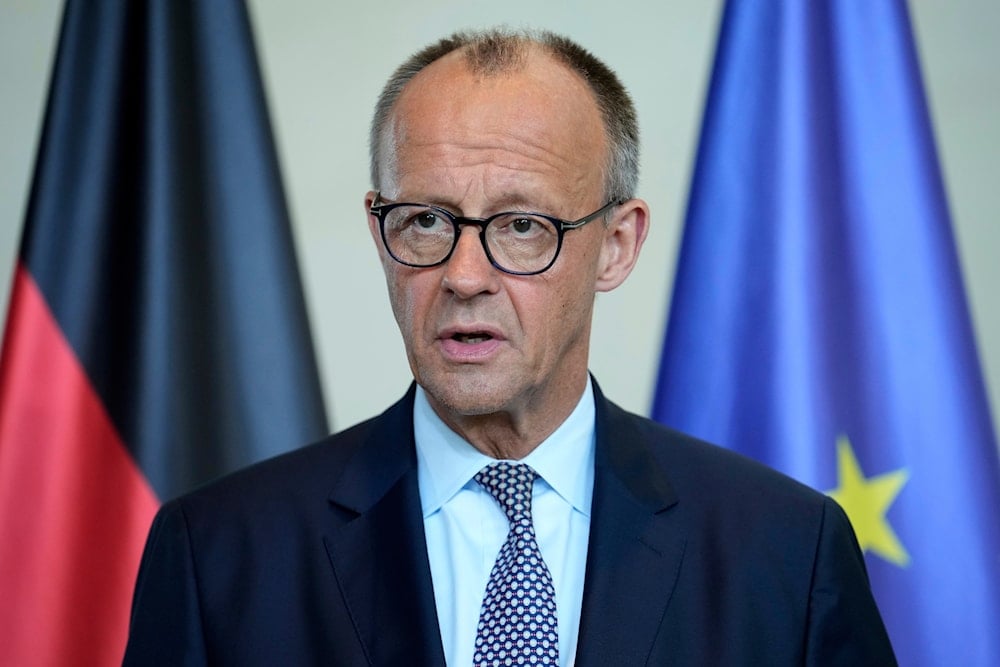Merz eyes new alike-thinking trade partners over US tariffs
Germany's chancellor calls for new global trade partners after the US imposes 15% tariffs on EU goods.
-

German Chancellor Friedrich Merz attends a joint press statement with Ukrainian President Volodymyr Zelensky following talks with European and US leaders in Berlin, Germany, Wednesday, August 13, 2025. (AP)
German Chancellor Friedrich Merz suggested that Germany should seek new trading partners globally in response to the United States imposing 15% tariffs on European Union goods.
Speaking at a government Open Day event in Berlin, Merz questioned how to navigate world trade, stating that the challenge arises from the fact that "the Americans are no longer prepared to play by the rules of the World Trade Organisation."
While acknowledging the necessity of maintaining good economic relations with the US, the chancellor noted that Germany may have gotten off lightly in the current tariff situation. Merz pointed to potential trade opportunities in South America, Asia, and Africa, while emphasizing that these relationships should be of mutual benefit to all parties involved.
Merz stated, "We should search for partners in the world that share our thinking," while adding that Germany "must consistently go down that road."
Germany's economy contracted more sharply than anticipated in the second quarter as new data show higher US tariffs have dealt a heavy blow to exports, deepening concerns over the country's prolonged stagnation.
German GDP 0.3% down
Figures released Friday by the federal statistics agency Destatis revealed that gross domestic product declined by 0.3 percent compared with the previous quarter, which was worse than the agency's initial estimate of a 0.1 percent drop that was issued in July.
The downturn was driven by a 0.6 percent fall in goods exports and a 1.9 percent drop in spending on machinery and equipment, which underscores the difficulties facing manufacturers in the first full quarter under Washington's new tariff regime. This poses a significant challenge given that the United States is Germany's most important trade partner and accounts for roughly 10 percent of its exports, particularly in key sectors like automobiles and chemicals.
Household consumption proved weaker than earlier estimates, while both the construction and industrial sectors posted disappointing results, a trend further illustrated by separate figures published earlier in August, which showed that German industrial production in June sank to its lowest level since the onset of the Covid-19 pandemic in 2020.

 2 Min Read
2 Min Read










